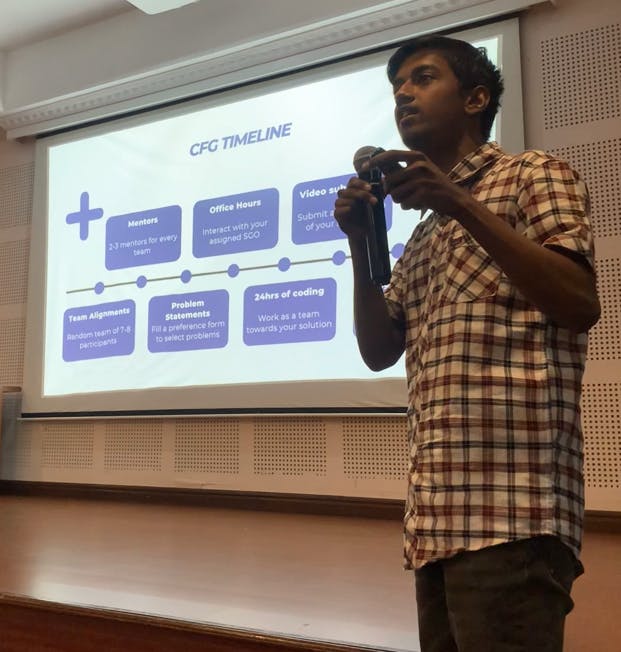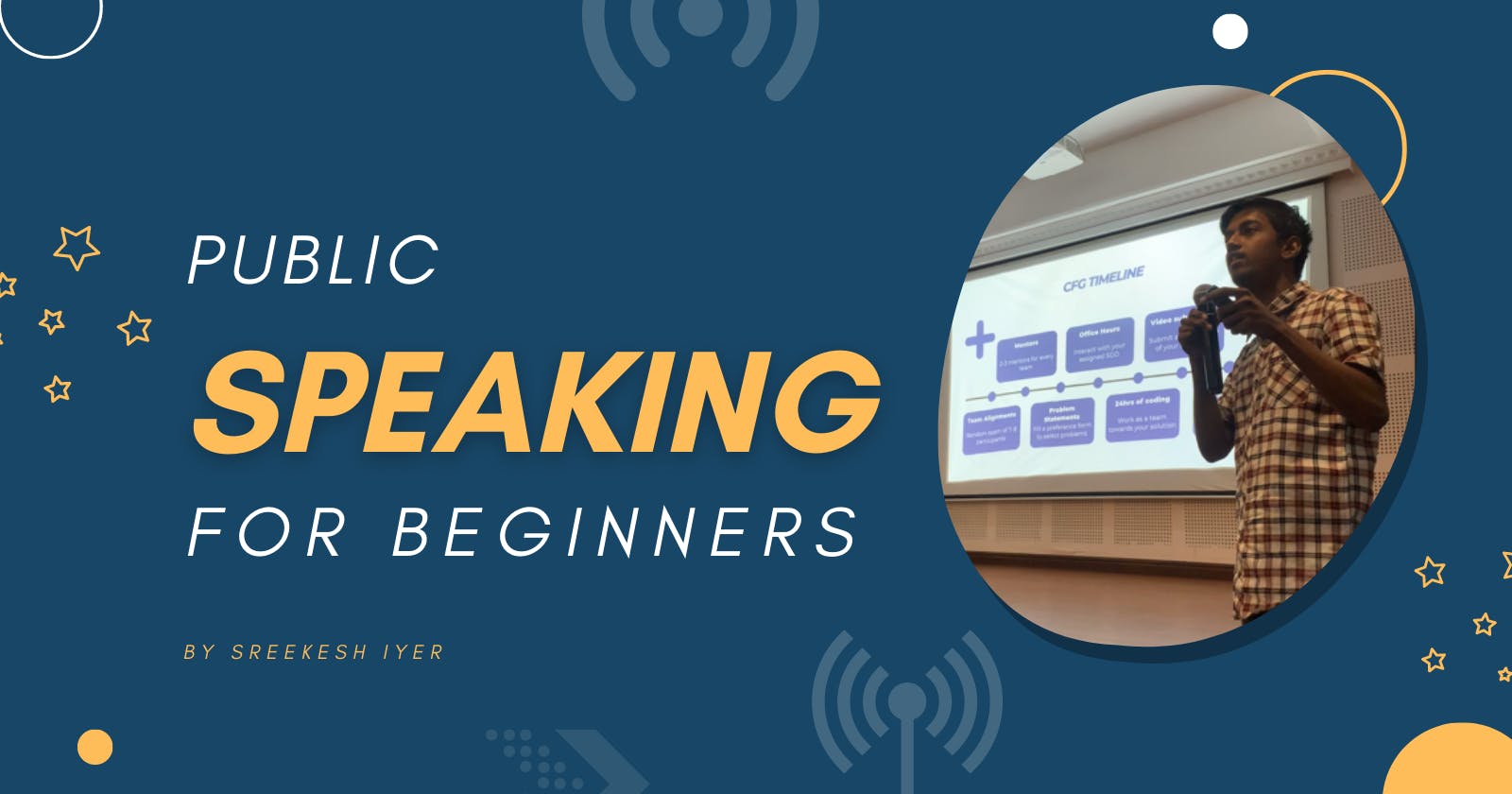Public Speaking is the art of creating an aura around yourself where you can create an impact on people and their minds. In today's world, especially as developers, we need to have a good hold over our soft skills to be able to present a case for ourselves at different stages of our careers.
In this thread, I want to share my story and leave you with 3 strategies to become a good public speaker.
My story

I used to be a guy who was afraid of the stage right from school. Even during the days of my junior college (11th grade), my feet used to shiver when I was on stage. My nervousness was at its peak. And it was pretty much the same through the first half of Engineering.
My transition from a guy who could barely speak in public to a proper public speaker who now talks live on stage and takes online sessions and workshops happened in the last 12 months.
The key is self-confidence. I know for a fact that it is challenging to improve your confidence. It takes time. The best way to boost your confidence is by doing things. Build that application, create that new design, publish that blog or upload that new video you worked on. When there is a sense of achievement, it creates self-belief within you, so when you talk about it, you back your words with actions, essentially practicing what you preach.
If you're starting out or even trying to improve as a speaker, here are some things I'd recommend you to do.
Keep it Simple and Natural

First of all, the moment you hop in on stage, take a deep breath. I mean it. Make yourself comfortable. Taking deep breaths generally kicks down the anxiety and ensures that you're not overwhelmed by the occasion.
If you're starting out, speak in the language you're most comfortable with. It could be your native tongue. My native tongue is Tamil, but I'm most comfortable speaking in Hindi and English and generally, I keep it as a mix of the two depending on my audience.
The best conversations happen when they are authentic. I'd highly recommend that you talk about YOUR experiences because they are the most valuable from any speaking event.
A lot of people talk about voice modulation, but I suggest that you talk in your normal voice at the beginning, you'll discover these things as you progress.
Ask questions to the audience

Most people in the audience refrain from speaking, but there are always a few people who will add immense value to the conversation. So it's best to have their opinions on board.
When you're sharing an experience or an idea, you can ask the audience for similar experiences and thoughts. If the audience does not seem to interact, you can switch to "Yes/No" questions and questions that only require them to raise their hands.
I mention this because this period of getting an answer from the audience buys you some extra time to breathe, recollect your thoughts and probably introduce more ideas in the session.
Narrate your Stories

I've said this before. Your experiences are the most valuable assets from your talks. Especially as developers, when we talk about languages, frameworks and tools, it's almost certain that there is written and video documentation for the same thing freely available online.
You can make your sessions unique by talking about your experiences, and your stories because they are specific to you. This might also end up inspiring individuals from the audience to bring their perspectives to the table. It could be anything, an interesting aspect that maybe not a lot of people discovered, a unique approach to something, etc.
I've observed that people love listening to stories and when you're talking to people of your age group, there's a lot that they can relate to as well.
As you keep speaking, you'll become more and more confident about your skills. It will take time, but I assure you that you'll get there one day :)

